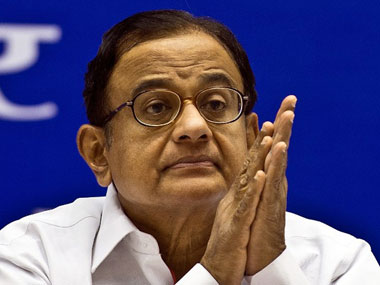How did a provision that was only meant to ensure that the day-to-day running of government doesn’t come to a standstill between the time a financial year ends and a new government takes charge become an Event called Interim Budget (something the Constitution does not mention)?
Probably from the time that budgets themselves became less of the accounting exercises they were meant to be and more of an occasion for policy grandstanding. Since interim budgets are necessitated when general elections are scheduled within a couple of months of the start of a new financial year, it is inevitable that policy grandstanding is accompanied by populist giveaways, never mind the fact there may not be adequate fiscal space for this.
Will P. Chidambaram, who has of late been preaching the virtues of fiscal consolidation, eschew a blatantly populist approach? Or will he take that road, knowing full well that he will not be there to face the consequences?
[caption id=“attachment_1380165” align=“alignleft” width=“380”]
 Will Chidambaram put the party above the country? We will know in a few hours from now. AFP.[/caption]
Will Chidambaram put the party above the country? We will know in a few hours from now. AFP.[/caption]
What did some of his predecessors do, when they were put in a similar situation?
Yashwant Sinha, presenting his second interim budget in 1998-99 (his first was in 1991-92), was extremely circumspect. His four-page speech made no grand claims and promises, but merely outlined the problem areas that needed to be addressed.
The next BJP finance minister, Jaswant Singh, however, made a rather political budget speech, with a clear eye on the 2004 elections_. Garib ke pet me dana aur grahini ki tukia mein anna_ (food in the stomachs of the poor and money in the purses of housewives) was his catchphrase. But perhaps did the best tightrope walk between electoral-eve populism and prudent economic management.
His job, of course, was made easier, by the fact that the both the economy and public finances were in good shape. So, Singh went ahead and announced an increase in the coverage of the Antyodaya Anna Yojana from 1.5 crore families to 2 crore families and that of the farm income insurance scheme from 20 to 100 districts. He also said the practice of banks asking farmers to mortgage their entire land be discontinued.
The middle class was not ignored. He announced that dearness allowance up to 50 percent of pay, will be merged with the basic pay in the case of government employees. Several other promises new AIIMS-style hospitals, new medical colleges, an accelerated drinking water supply scheme for cities and four global-standard convention centres had no clear deadlines.
More importantly, in doing all this, he kept a tight rein on the fisc, even though there were a few fiscal concessions. The fiscal deficit was actually projected to decline and it did.
Pranab Mukherjee presented the next interim budget in 2009. The economic context was quite different. The Lehman crash had happened six months earlier and brought a global slowdown in its wake. Industry was looking for more tax sops (an interim budget cannot raise new direct taxes but can modify existing indirect tax rates), but since the government had already been quite generous in stimulus packages in December, there was nothing on that front.
But how can a government go into an election without any sops at all? So though Mukherjee did not come up with new programmes and schemes, allocations for the UPA’s flagship programmes were a whopping Rs 1,16,000 crore. In fact, that took up a significant chunk of an otherwise cautious and pedestrian budget speech. But he had to admit, however, that the government’s hold on the fisc had slipped.
Though he couldn’t come up with new tax proposals, Mukherjee set the tone for the future with an 11-point agenda covering a 9 percent growth target, encouraging agriculture growth of 4 per cent, bridging the infrastructure gap and expanding the reach of social safety nets, among other things.
The political context of Singh’s and Mukherjee’s speeches were different from the one Chidambaram will deliver. The NDA had been over-confident about returning to power in 2004. In 2009, the Congress believed it had a fair chance at coming back. In spite of that, their interim budgets were largely responsible.
In 2014, however, the Congress’ chances appear extremely bleak. Several of the government’s actions in the economic realm in the past few months give the impression that it is not bothered about the larger fiscal and economic implications in the next financial year, perhaps because it believes it will not come to power.
Chidambaram has been saying ad nauseum that he will not cross the red line of a fiscal deficit of 4.8 per cent of GDP. But that is about the current year’s fiscal deficit. There is nothing to stop him from announcing stepped up funding for existing money-guzzling schemes that will put a fiscal burden on the next government, knowing full well that it is not easy to roll back populist programmes. The idea will be to go all out to woo the voters.
Will Chidambaram put the party above the country? We will know in a few hours from now.
Seetha is a senior journalist and author.
)